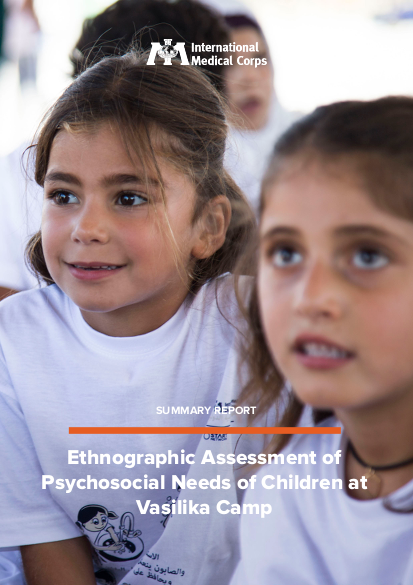Summary Report

Vasilika camp is one of the camps established by the Greek Government to house the Syrian refugee population trapped in the country after Macedonia closed its border in March 2016. It consists of seven large hangars that were previouslyused to house a chicken farm beside a major highway running East from Thessaloniki to the coast. The surrounding area contains industrial wasteland and factories. Opposite the camp is a scrap metal plant. There are no green spaces, food shops, or residential community nearby. Outside the hangars is a large area that was being graveled over while the survey was being done. There is a small open playground with some swings and sand on the ground. There is one shaded area. There is a very small school room without seating or desks. One of the hangars is used for loading and unloading lorries and for recreation space. There are chemical toilets and some shower facilities. Staff at the camp have access to a separate locked water toilet.
The research was conducted between the 2nd and 5th of August 2016 at Vasilika camp in Northern Greece. The findings of this report reflect the conditions of Vasilika camp in August 2016; however, the camp conditions have evolved since and continue to change over time. The aim was to have a better understanding of children’s psychosocial concerns and needs and how these might be addressed. In order to explore this, four gender segregated focus groups were conducted with 23 children aged between 8 and 14. In addition, 4 key informant interviews were conducted with 2 boys and 2 girls. Two focus groups were also conducted with parents to gain their perspective on the same issues: four fathers and six mothers.